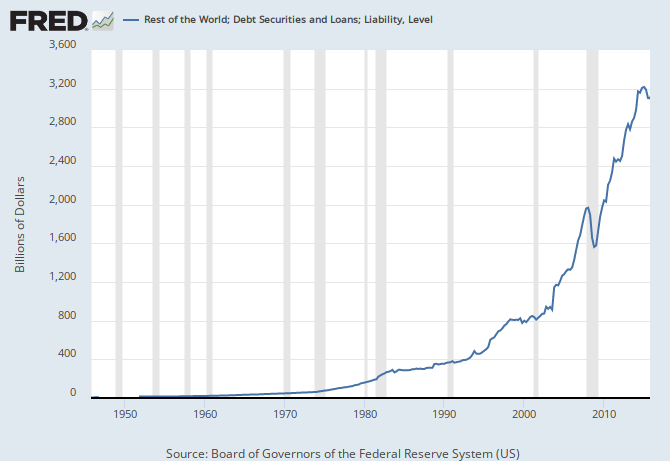Corporate Debt Measure
Jump to navigation
Jump to search
A Corporate Debt Measure is a debt held by a corporation.
- Context:
- It can range from being a Tradeable Corporate Debt to being a Non-Tradeable Corporate Debt.
- It can range from being an Individual Entity Corporate Debt to being a National Corporate Debt to being a Global Corporate Debt.
- It can range from being a Non-Financial Corporate Debt to being a Financial Institution Debt.
- It can range from being a Judicious Financial Corporate Debt to being a Excessive Financial Corporate Debt (Reinhart & Rogoff, 2009).
- It can be associated to a National Corporate Debt, such as U.S. Corporate Debt.
- …
- Example(s):
- Ford's Corporate Debt, such as based on Ford's corporate bond.
- U.S. Corporate Debt, or Chinese Corporate Debt.
- …
- Counter-Example(s):
- See: Corporate Bond, Commercial Paper, Bond (Finance), Corporation, Mergers And Acquisitions, Financial Instrument, Maturity (Finance), Net Credit Spread.
References
2018
- "Stock Markets Are Wild, but Bond Markets Can Be Dangerous." In: The New York Times, (2018-12-18).
- QUOTE: ... The difference between the low interest rate that the government pays and the higher rate of another borrower is called the credit spread. Riskier borrowers typically have larger spreads. ...
... Netflix has gone from having very little debt in 2010 to having more than $10 billion now. Verizon now has $113 billion of debt, more than double the amount it had six years ago. By one measure, the ratio of corporate debt to G.D.P., the total level of borrowing is at all-time highs.
- QUOTE: ... The difference between the low interest rate that the government pays and the higher rate of another borrower is called the credit spread. Riskier borrowers typically have larger spreads. ...
1974
- (Merton, 1974) ⇒ Robert C. Merton. (1974). “On the Pricing of Corporate Debt: The Risk Structure of Interest Rates.” The Journal of finance 29, no. 2
- QUOTE: The value of a particular issue of corporate debt depends essentially on three items: (1) the required rate of return on riskless (in terms of default) debt (e.g., government bonds or very high grade corporate bonds); (2) the various provisions and restrictions contained in the indenture (e.g., maturity date, coupon rate, call terms, seniority in the event of default, sinking fund, etc.); (3) the probability that the firm will be unable to satisfy some or all of the indenture requirements (i.e., the probability of default). . …
